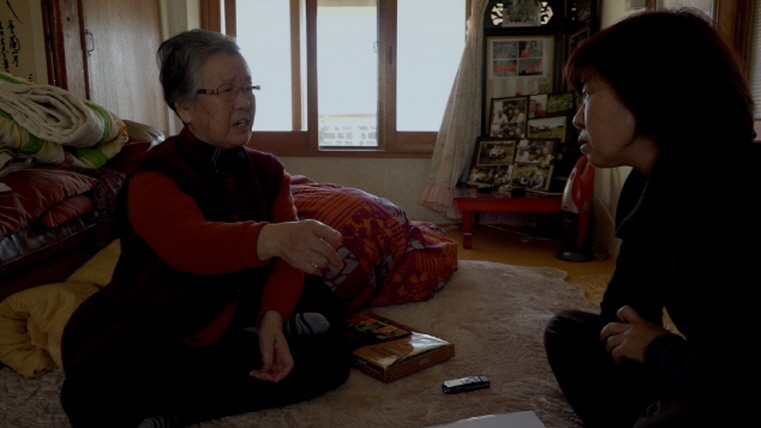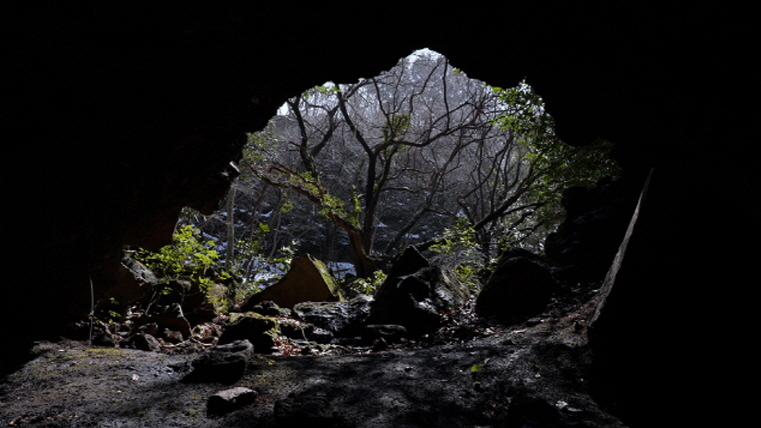South Korean documentary film “Until the Stones Speak” is often haunting as simply listening to the sad and bitter testimonies from five old ladies who have coped with each own pain and trauma from one of the most atrocious incidents in the modern South Korean history during the 20th century. Although more than 70 years have passed since that incident, they still can vividly recollect what happened to them and many others around them during that horrible time, and the documentary certainly works as a valuable record of their personal stories to remember.
That incident in question is the Jeju Uprising during 1948-1949, which is also called the Jeju 4.3 incident in South Korea. At that time, many people in Jeju Island protested the upcoming national election which would eventually elect Syngman Rhee as the first president of South Korea, and this was naturally oppressed by the South Korean police and military by any means necessary under the approval of President Rhee. It is estimated that around 30,000 people were killed as a consequence, and the investigation by a national committee in the early 2000s revealed more of the numerous atrocities committed during that violent time.
The documentary introduces us to five old ladies one by one, and they all have each own sad and painful story to tell. During the opening part of the documentary, one of these old ladies reminisces about how her father, who was just a plain farmer, got killed along with several other prominent members of their village by the local police just because the local police wanted to do some retaliation against their enemies. Sadly, there was nothing she could do for saving her father, and she also could have gotten killed along with her father and others because the local police and the South Korean military were always ready to kill anyone to be labeled as a communist at any time.
In case of the four other old ladies, they and many local people of Jeju Island were brutally oppressed just for fleeing from the local police and the South Korean military. As their villages were destroyed, they had no choice but to hide themselves around numerous mounds in the island, and they managed to live and survive there for next several months, though all of them and others were eventually captured around the end of the Jeju Uprising.
What followed next was quite traumatic for them to say the least. The local police savagely tortured them a lot before sending them and many other people captured people together to a military trial which was quite unfair and illegal from the very beginning. They were not told anything about why they were brought there, and, to believe or not, the judges presiding over the “cases” randomly doled out the sentences upon them without much thought or consideration.
Ironically, they were relieved a bit when they were subsequently sent to the prisons in the mainland. At least, they could get away from all the brutalities happening in Jeju Island, and they were actually treated a little better as serving their respective prison sentences, though they still had to struggle day by day in their prisons.
In the end, they and many others got released some time later, but there were still more struggles for all of them. In case of one of them, she was persuaded to marry her second husband just because her first husband was assumed to be killed during the incident, but, what do you know, he subsequently turned out to be alive not long after her second marriage, so she was forced to go back to her first husband.
Although they were not allowed to speak about the incident during next several decades, they have often told their stories to their family members in private. At one point later in the documentary, one of these old ladies is visited by her daughters, and her daughters show the sincere compassion and understanding on those nearly unimaginable cruelties inflicted upon their mother.
It was really fortunate that they and many other aging survivors of the incident could finally speak about the incident around the early 2000s. In 2018, they and a bunch of other people who were also wrongfully imprisoned at that time sent a belated petition on their unfair prison sentence, and the court subsequently nullified their prison sentence in the very next year after rightfully deciding that their case was a grossly serious case of mistrial. Considering all those many years of silence and oppression, this judgment might come a bit too late, but all of them were glad about finally getting the justice they had waited so long.
On the whole, “Until the Stones Speak”, directed by Kim Kyung-man, is calm but poignant in its sincere and respectful handling of its several human subjects, and you will not easily forget their stories after it is over. Although I and many of South Korean audiences have to depend a lot on the subtitle due to their heavy Jeju dialect, their stories gradually came alive in my mind nonetheless, and I came to reflect more on how much I do not know about the Jeju uprising. While these old ladies and other survivors are fading away into the past at present, the incident and their tragic stories deserve much more attention in my inconsequential opinion, and I will not certainly forget them.










